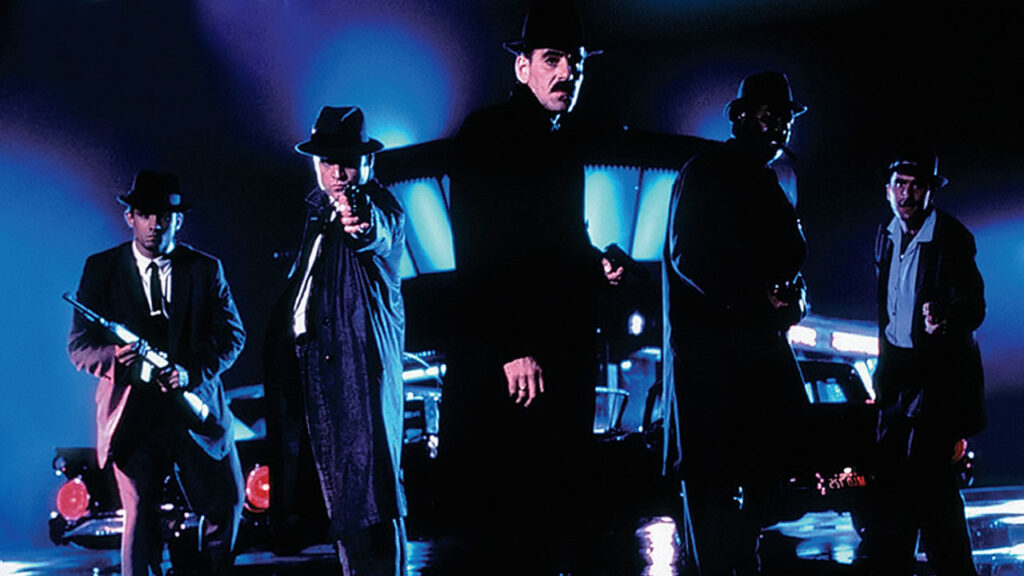
“Dennis Farina brought his Chicago street sense to many roles.” Chicago cop turned actor Dennis Farina died yesterday at 69. Filmmaking collaborators—and the CPD—pay tribute at the Sun-Times (registration required). Related: RogerEbert.com editor Matt Zoller Seitz’s Farina appreciation at Vulture. See also: RogerEbert.com contributor Odie Henderson on Midnight Run at The House Next Door.
“Throughout his career, Mr. Farina relied
on his ex-cop’s perspective to anchor his performances. In the 1998
interview with the Sun-Times, he called ‘N.Y.P.D. Blue’ and ‘Law &
Order’ ‘fine shows, but they take so much dramatic license with how
police officers do their work. On those shows, the officers never seem
to have a nice day. I was a police officer for nearly 20 years. I had
plenty of nice days. Some were not so good, but plenty were.'”


“Memo to Nate Silver: The Oscars Ain’t Politics.” Nate Silver is moving from The New York Times to ESPN, where he’ll cover a broader array of subjects — including the Academy Awards. Even though Silver maintains, as he has consistently, that “there’s not a great statistical way to predict the Oscars,” The Hollywood Reporter‘s Scott Feinberg lays into him anyway.
“Whether or not he ends up treating
any future Oscars predicting sideline as a serious effort or just fun, I
think a reality check is in order. Having specialized in Oscars
predictions and analysis myself for the past 12 years, I can assure
Silver and ABC that it requires a totally different set of skills and
experiences than does electoral forecasting. Silver actually found that
out himself over the last few years, when he began wading into Oscar
predictions and got slightly burned, if not scalded.”

“Letter from a Bankrupt City: Eulogizing Detroit’s Dream of Social Justice.” Sam Butler provides some historical perspective on Detroit’s declaration of bankruptcy — and what it means for a city that once strove to be a “utopia of class equality and beacon of black power.”

“Conservatives point to a lazy auto industry that was further ham-tied
by demanding unions. These critics paint Detroit as a city with a
bloated government bureaucracy, perpetuating a sense of entitlement and
breeding a culture of dependency. At the same time, liberal pundits call Detroit the prototypical
example of big business pillaging a working-class community. They
describe Detroit running a race-to-the-bottom, offering tax incentives
for the Big Three — a strategy that led to the leveling of entire
neighborhoods to build assembly plants — only to have the Big Three
leave anyway. Federal culprits such as NAFTA and subsidized highways to the suburbs are also cited in the coroner’s report. All of these narratives are true, yet they all miss a pertinent
reason why Detroit should be reflected on, and ultimately mourned, by
the rest of the country: Detroit’s bankruptcy is the death knell of a
social justice dream.”


“The Fantastic Failure of The Lone Ranger.” Eileen Jones speaks out in defense of Gore Verbinski‘s latest attempt to revive the Western.
“For
a lot of people professing to truly love film, the spectacular fiasco
of a movie like The Lone Ranger becomes proof of the essential evil and
idiocy of Hollywood cinema. I’ve never been able to accede to this view.
Loving film plus hating the entirety of Hollywood’s output is an
equation I could never work out — Hollywood has simply produced too many
great films over the decades, even if it also seems to produce fewer and
fewer as the years go on. Even Gore Verbinski agrees to that, and puts
himself in the company of those participating in the death throes of
Hollywood, laughing as he says, ‘We seem to be on some crazy road to
extinction.'”


“Some warts-and-all documentaries take viewers deeper into the world of Troma than most would ever want to go.” Nathan Rabin, writing at The Dissolve, is up for the challenge anyway, pairing two documentaries on Lloyd Kaufman’s Grade-Z juggernaut.
“Kaufman has developed a cult of personality that makes him and Troma
bigger than the tacky little B-movies they put out, cult oddities with
titles like ‘The Toxic Avenger,’ ‘Class Of Nuke ‘Em High,’ ‘Surf Nazis Must Die,’ ‘Ferocious Female Freedom Fighters,’ and ‘Blood Sucking Freaks.’ In
proudly disreputable B-movie tradition, Troma films can be sold on
their colorful titles alone, which are so descriptive that they make
actually seeing the film redundant. It’s enough to merely know that
films like ‘Redneck Zombies‘ exist and make the cinematic world a
weirder, kookier, more colorful place. If anything, it might be easier
to be a Troma fan and not see its films. In theory, Troma is fantastic; in actuality, its films tend to be endurance tests.”

 A proposed development on Detroit’s east riverfront. According to the Detroit Free Press, a St. Louis developer believes there’s a resurgent housing market for young professionals in the troubled city.
A proposed development on Detroit’s east riverfront. According to the Detroit Free Press, a St. Louis developer believes there’s a resurgent housing market for young professionals in the troubled city.

The Crime Story chapter of of “Zen Pulp: The Art of Michael Mann,” RogerEbert.com editor Matt Zoller Seitz’s 2009 video essay series about the director’s work.











